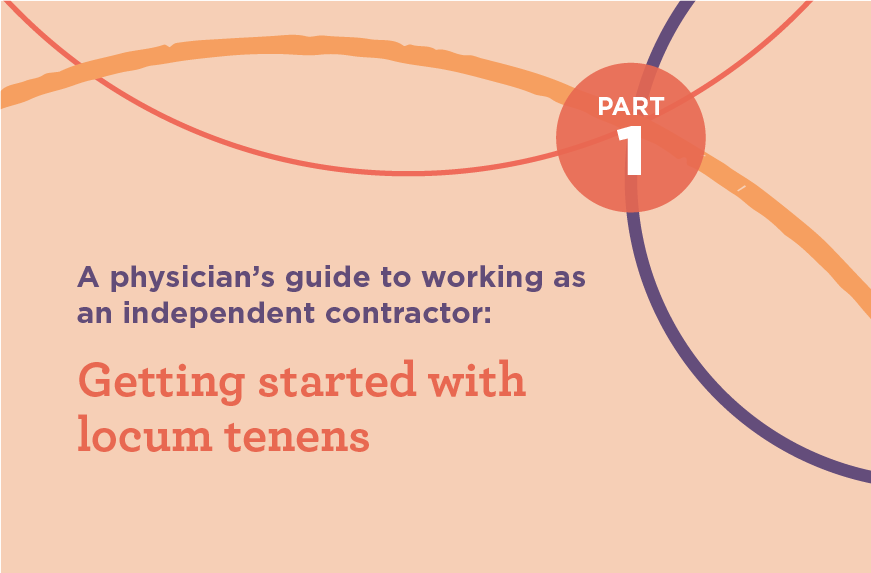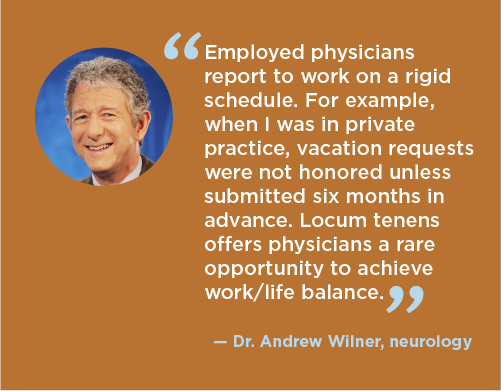

November 14th, 2023 9 Min read
This is part one in a five-part series on everything a physician needs to know about working as an independent contractor.
When physicians take locum tenens assignments, they typically work as independent contractors. What does that entail, and how can you make it work for your situation? Whether you’re interested in one weekend a month or want to work locums tenens full time, this physician’s guide to working as an independent contractor can help you get started with locum tenens.
A Latin term meaning “holding the place,” a locum tenens provider is a healthcare professional (physician, physician assistant, or nurse practitioner) who temporarily takes another healthcare provider’s position or fills in where there is a need for additional care. Though some locum tenens assignments require only one shift, others can last several months.
To learn the story of how locum tenens began, watch the video from Locumstory below:

Locum tenens isn’t the only way to earn extra money as a physician independent contractor. It often goes hand-in-hand with other part-time employment options you may already be familiar with.
While the terms are sometimes used interchangeably, moonlighting and locum tenens are not the same thing. “Moonlighting” refers to any secondary job a healthcare provider takes in addition to their regular position. Most doctors moonlight by picking up extra shifts at local hospitals, often with irregular or nighttime hours (hence the term “moonlighting”).
You’ve probably heard the term per diem used to describe living expenses, as it is Latin for “per day.” Similarly, per diem physician jobs or PRN (“pro re nata”) work are temporary agreements between a doctor and a hospital (a staffing agency is not involved). While locum tenens assignments have a set starting and ending date, per diem jobs do not have a fixed schedule, so doctors can work extra shifts whenever they are available.
Per diem work typically doesn’t come with the benefits of locum tenens work, such as malpractice coverage, housing, and travel or mileage stipends. Essentially, most physicians who work per diem are supplementing their full-time position or have multiple per diem contracts at local hospitals. On the other hand, locum tenens assignments may require travel and often offer enough hours for full-time employment.
There are a variety of other nonclinical physician jobs that physicians can do, whether you want to take a break from clinical practice entirely or make some additional income on the side. These can range from consulting on pharmaceutical drug development or medical technology to medical writing and physician coaching. Dr. Wilner provides his perspective on nonclinical careers and why many physicians are showing interest.
So locum tenens sounds great, right? But how do you get started? Read part two of this series for everything you need to know about working with a locum tenens agency.
Interested in learning more about locum tenens opportunities? We can help you find your first assignment. Give us a call at 800.453.3030 or view today’s locum tenens job openings.
Lindsay Wilcox is a communication professional with experience writing for the healthcare and entertainment industries as well as local government. When she's not circling typos, she's enjoying fish tacos and hanging out with her family.